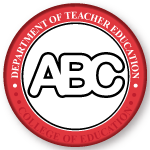Author ORCID Identifier
Document Type
Dissertation
Publication Date
6-23-2022
Abstract
Across the United States, Anti-LGBTQ curriculum laws are being passed in staggering numbers, impacting an estimated 25 million children. At a time where a majority of LBGTQ students report feeling unsafe at school, a significant education challenge is how to meet the needs of these students while addressing and dismantling the way the institution of science education continues to uphold systems of oppression. While there have been waves of LGBTQinclusive science education reform, these movements have been stymied by a lack of cohesive guidelines for practice and are generally limited in their inclusion of considerations that attend to the needs of trans* and gender creative students. In order to address the epistemic erasure of trans* voices and perspectives in LGBTQinclusive science education reform, this dissertation explored the gender-inclusive teaching practices of 10 trans*-identified science teachers with the purpose of learning from their experiences creating trans*-inclusive science curriculum. Using a qualitative research design, this dissertation collected three sources of data (interviews, instructional materials samples, and reflective teaching statements) in order to answer the research questions. Emergent in the data was the overarching theme of trans*-informed science education pedagogy which encompassed the central philosophies and practices employed by the teacher participants. First, participant interview data revealed that teachers’ trans* experiences impacted the development of their teaching motivations, desires to be visible trans* role models, and shaped their epistemological relationships to science as well as to science teaching and learning. Second, the triangulation of teaching materials and reflective statements with interview data led to the identification of three teaching practices including interrogating and accessing power, resisting essentialism, and embracing experiential knowledge and personal epistemologies. Together, these philosophies and practices lay the theoretical and conceptual foundation for a set of teaching principles that can guide teachers in implementing gender-inclusive science teacher through a trans*-informed lens. These recommendations implore teachers to Teach with Continuity and Authenticity, Center Epistemic Justice, Affirm Diversity, Embrace Scientific Complexity, Emphasize Experiential Knowledge and Personal Epistemologies, and Critically Assess Provenance and Validity when selecting gender-inclusive teaching materials. The findings of this dissertation are valuable to the science education community because they amplify and center the experiential knowledge of teachers whose voices are critically absent from conversations surrounding LGBTQ-inclusive science education practice. Moreover, the principles derived from trans* teachers’ experiences can be used to guide other educators in making their science classrooms more trans*-inclusive.
Recommended Citation
Rende, K. Ren, "We Can Update our Own Stories: Trans*-Informed Principles for Gender-Inclusive Science Teaching." (2022). Teacher Education Faculty Publications. 143.
https://digitalcommons.unomaha.edu/tedfacpub/143


Comments
This is a doctoral dissertation form NC State. Author is the copyright holder and must be contacted directly for reuse permission.